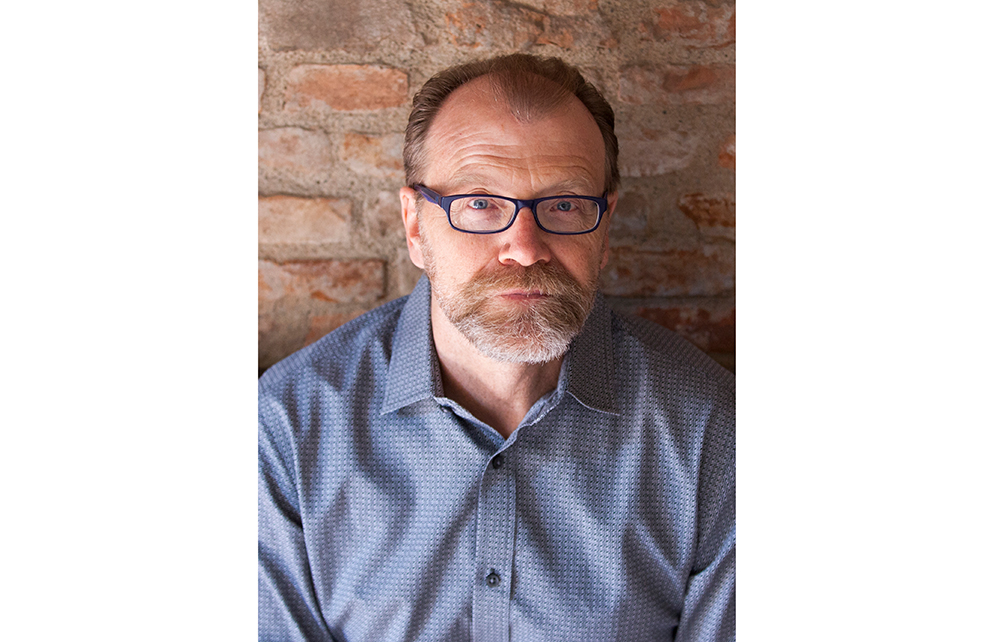George Saunders’s handbook published last year, A Swim in a Pond in the Rain, gave masterclasses on seven short stories by four Russian masters of the form: Tolstoy, Turgenev, Chekhov and Gogol. His critical observations can be taken as the manifesto for his own work. (The winner of the 2017 Man Booker prize with his first novel, Lincoln in the Bardo, he is still best known as a short story writer.) It’s fair, then, to apply his stated rules to the pieces in his new collection.
The last story, ‘My House’, although briefer, holds up well against Chekhov’s ‘In the Cart’. The title immediately contains a twist, because it’s not the narrator’s house, even though the historical building is for sale and he can easily afford the asking price. It might be the house he feels he was born to own as a lover of history and as one who can restore it to its former beauty, but it actually belongs to the impoverished Mel Hays. ‘Is it a story yet?’, Saunders demands of Chekhov. We’re certainly on the way.
Themes of brainwashing, thought control and mindless violence feel like a troubled response to the Trump era
He cautions readers not to miss any stray detail. There are hitching posts outside Hays’s barn, ‘each capped with a different serpent’s face’. This, and the subsequent house tour, follow Saunders’s rule of ‘increased specification’ – we start to lust after the house too – but surely those serpents hint at trouble to come. And we’re only on paragraph two! ‘The story form is ruthlessly efficient,’ as Saunders notes.
Why are we reading about this house when the unnamed narrator has presumably lived in many others? Without ever spelling it out, Saunders lets us see that this is a man who in the course of his long life has been used to getting his own way. Hanging on a peg is ‘a child’s jacket from the time of Washington, smudged, just there, with mud from the period’. The putative buyer believes the owner, but do we? And if so, why?
The reason for Hays’s final decision can only be inferred – we don’t have access to his thoughts. But in another story, ‘Mother’s Day’, the point of view skips between two old antagonists, each eyeing the other with disfavour. Grouchy Alma is being taken by her daughter for a Mother’s Day treat (‘What was Pammy trying to do, cripple her?’) when they come across Debi sweeping her walkway. ‘Good God. Was she ever old,’ thinks Alma. ‘Lord, what a face: shrivelled apple.’ ‘Drawstring purse pulled tight’ is Debi’s more vivid impression of Alma.
A series of opposites is set up. Alma is conventional while Debi is hippyish in her ‘Asian blouse, pants with ties at the ankles’, Alma notes with scorn. But Saunders dispels any idea that we should side with one over the other. Both women fall to daydreaming about their past sexual lives; they’re more alike than they will ever know. Debi’s willed benevolence conceals more self-delusion than Alma’s straightforward mean-spiritedness. The two old ladies’ manifest vitality saves Saunders from a charge of masculine condescension.
Elsewhere, themes of brainwashing, thought control and mindless violence feel like a troubled response to the Trump era. In the title story, helpless human puppets act out sanitised versions of American history for approving audiences, until increasing verisimilitude brings a partial enlightenment. Amnesiac ‘Elliott Spencer’, trapped in another nightmare scenario, suddenly recovers his own name and backstory, while in ‘Ghoul’, role-players in a London Dungeon-type horror show slowly realise that no one (i.e. God) is watching them at all.
Such stories, with their invented language and formal experimentation, break with the Turgenev/Tolstoy realist tradition completely, but just like theirs, Saunders’s work repays multiple rereadings.






Comments